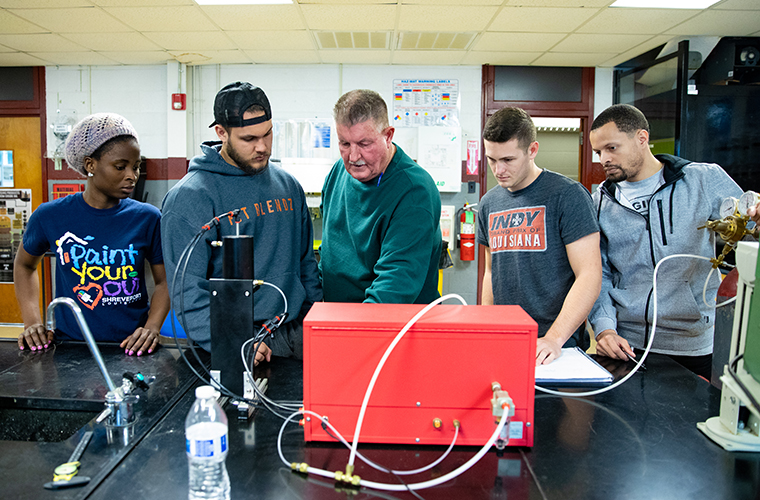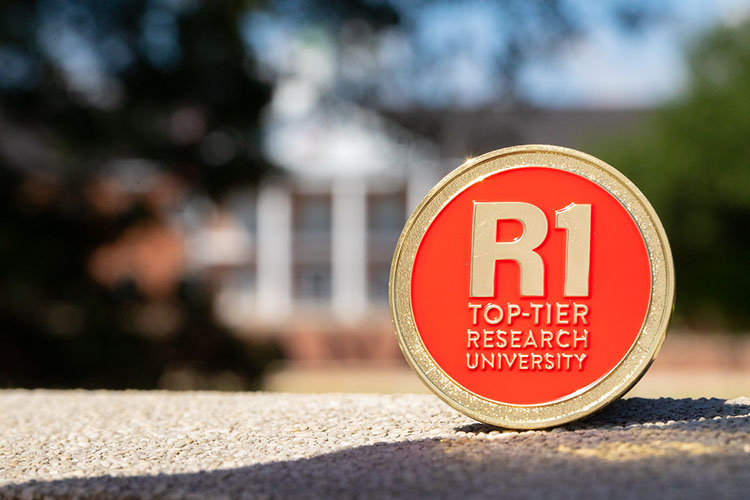Petroleum Engineering (M.S.)
The Master of Science in Petroleum Engineering will develop your ability to apply advanced techniques to problem-solving in engineering.
Core engineering courses coupled with courses in the petroleum engineering concentration provide both specialization and a broad fundamental knowledge of the discipline. Example areas of particular emphasis by the department include reservoir engineering, tertiary recovery, environmental engineering, computational fluid flow, drilling, process economics, and computer-visualization of petroleum systems. Both thesis and non-thesis programs are available.
The College of Engineering at UL Lafayette was ranked among the country's best in the U.S. News & World Report's 2023 edition of "Best Graduate Schools."
The goal of the UL Lafayette College of Engineering is to position all of its M.S. graduates to be capable of successfully obtaining their respective Professional Engineering License (PE) via first passing the Fundamentals of Engineering Exam (FE).
Applicants must have either (1) an engineering degree from an ABET/EAC accredited program or (2) an engineering degree from a non-accredited engineering program or (3) a degree from a closely aligned, non-engineering major. Non-engineering degreed applicants from calculus-based majors will be considered; however, in most cases, leveling undergraduate courses will be required to ensure that the student has an acceptable engineering knowledge base. Which leveling courses are required will be determined on a case-by-case basis.
This program prepares its students for licensure or certification within the state of Louisiana. For more information regarding credentialing requirements, including important information if you plan to move out of state, please visit the licensure programs page.
Petroleum Engineering at UL Lafayette

Excellence in Research
Work on high-impact research that contributes to economic development within our state. External research funding in the College of Engineering has increased by over 400 percent in the last decade, now totaling over $12 million.
Learn more about petroleum engineering research opportunities
World-Class Research & Teaching Labs
Experience our specialized research and instructional labs, including the Materials Testing Lab, Production Engineering Lab, Reservoir Engineering Lab, and Improved Oil Recovery Lab.
Learn more about facilitiesStudent Organizations
Get experience and expand your network academically and professionally through a student organization. Our Student Society of Petroleum Engineers chapter has won Best Chapter in both North America and the world five times in the last six years.
Explore OrganizationsSpecialized Career Support
Receive resume writing advice, interviewing tips, internship and co-op opportunities, and job placement help tailored especially for engineering students through The Frank & Jessie Mosing Endowed Engineering Student Career Development Program.
Learn more

